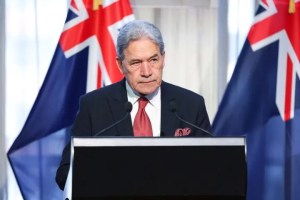We’ve all got a bit of Deplorable in us, even me. To paraphrase the philosopher who left the White House in 2016, I cling to my religion because it’s the tree of life. Being rather Old World as well as old school, I’m appalled by the proliferation of advanced weaponry in the US, but I favor the right to cling to some kind of gun. And having spent more time in the academy than is healthy or useful, I can confirm the ongoing accuracy of William F. Buckley’s observation about the repository of wisdom that is the first 300 names in the Cambridge, Mass. phone book. But I don’t like Steve Bannon. I’m only fascinated by him.
Bannon is the West’s foremost proponent of classic left-wing revolutionary strategies. The fact that he plays this part on behalf of the other side is at once incidental and, in a dialectical sense, profoundly significant. Henry Kissinger has observed that Donald Trump ‘may be one of those figures in history who appears from time to time to mark the end of an era and to force it to give up its old pretenses’. Trump, Kissinger said in July 2018, might not be aware of his Hegelian role, he might not have ‘any great alternative’ to present arrangements in mind, and he might have appeared as ‘an accident’. But that’s the zeitgeist for you.
In this light, floppy-fringed Bannon is a more interesting figure than our Yeti-pubed president. Trump is intuitive, attuned to the moods of cable news and the reactions of the hypostatized construction worker in his head. Bannon has thought it through. Before 2016, he grasped what his era was about, and why it had to end. He also understood the dialectical inversion that the Tea Party represented, and how to turn the enemy’s weapon, identity politics, back on its owners.
The Brink, by Alison Klayman, covers Bannon’s recent efforts to force his era to give up its old pretenses. It isn’t going well, but that isn’t all bad news for him. ‘The worse, the better’, Lenin is believed to have said. Bannon believes himself to be like Lenin, in sharing the common goal of wanting to ‘destroy the state’. Perhaps Lenin and Bannon were both thinking of the anarchist Bakunin, who really did want to destroy it, and was one of the champion anti-Semites of the left. Anyway, the state expelled Bannon in October 2017, following Trump’s maladroit response to the Unite the Right riot in Charlottesville, Va.
Since then, Bannon has traveled around the US and Europe inciting revolution, like Lenin in Zurich before the Russian Revolution, or Trotsky, who was in New York City when the revolution began. Klayman’s film follows Bannon in his first year out of the Trump circle as he tries to remain, as he puts it in impeccably Marxist terms, in the ‘vanguard’. Like the train that carried Lenin to the Finland Station, Bannon runs on two tracks with a timetable in mind. At home, he campaigns for ‘economic nationalism’ and ‘populism’ before the 2018 midterms. In Europe, he talks about ‘identity’ and ‘culture’ as he tries to gather Europe’s nationalist parties into a single force, which he calls The Movement, before the May 2019 European elections.
Bannon, sporting his trademark two shirts and three chins, is witty and clever, but also devious and amoral. Klayman, who occasionally drawls a contemptuous question off-camera, is merely devious and moral, and therefore not up to the task. The opening scene is a fit-up. Bannon reflects on a visit to Auschwitz-Birkenau, and how bureaucrats could generate ‘horror’ with train timetables and state-of-the-art technology. This is clearly Bannon in smash-the-administrative-state Bakunin mode, but Klayman manipulates it to look like Bannon is glorying in the horror. Creepy Second Viennese School strings are added to the soundtrack, so that we understand that Bannon is y’know, like, a Nazi.
The same sloppy presumption recurs whenever Bannon encounters what, thanks to his success in rewriting the political lexicon, is now known as ‘the MSM’. His ‘leftie’ interviewers despise him, so they fail to take him with the seriousness he deserves. Paul Lewis of the Guardian makes a particular fool of himself, by accusing Bannon of issuing anti-Semitic ‘dog whistles’ by attacking George Soros. Bannon is demonstrably right in saying that Soros is a major transnational donor to causes he favors, and that criticizing that is not inherently anti-Semitic. Lewis is only occasionally right, but his lack of focus and detail doesn’t come close to holding Bannon to account for inviting the Despicables into the mainstream along with the Deplorables. You come away feeling that Bannon deserves better enemies. Judging from the consolatory pat on the arm that he gives a visibly upset Lewis, you get the impression Bannon feels the same. Hegel promised that history was grand, but Bannon’s ‘war’, as he calls it, is only one of images. They didn’t stop at Gettysburg or Waterloo for ad breaks.
He knows that too. Of the active political figures of our time, Bannon is perhaps the most historically literate. When the US media are chasing Russian ‘collusion’, Bannon is looking at China’s use of Turkey and Iran as anti-American vectors in Asia and Europe. He reads a lot of history, so he knows that history, in Twain’s formulation, doesn’t repeat itself, so much as rhyme. His tactics, of course, are unscrupulous, and Klayman does catch him in lies here and there, including about the sources of his funding, but he’s not unscrupulous enough. The professional Republicans push him out at home. Nor do the egg-breaking, omelette-making Euronationalists have little use for a new head chef.
Book-loving Steve worships Abraham Lincoln and dreams of a color-blind, gay-tolerant populism. His idea of the ‘identity’ revolution amounts to an update on post-1945 Christian Democracy. But his Euronationalist friends are the ideological grandchildren of war criminals and collaborators. They were working to launder their past when Bannon was just an intern at Goldman Sachs, and they’re ahead of him. He seems genuinely shocked that his new friend Michel has attended memorial services for Belgian SS soldiers.
We leave Bannon still on the brink, positioning himself for next month’s European elections, in which the right, and the ‘cultural’ nationalists will do well. He will claim it as another victory, and it will be, in that he has managed to keep up with the vanguard of what he, like Trotsky, calls the ‘global revolution’. It will also be a victory for the Euronationalist operators who keep asking for the camera to be turned off, and for a randy dandy named Raheem Kassam, who can’t wait for the camera to be turned on.
Kassam is an ex-Breitbarter who has advised ex-leader Ukip leader Nigel Farage. In The Brink, he becomes an ex-adviser to Bannon on The Movement because, Bannon says, he’s spending too much time smoking cigars and hanging out in restaurants, ‘being a big shot’. Klayman appears to be fascinated by Kassam. Though Kassam is British-born and an ex-Muslim, her camera searches for reaction shots whenever someone talks about Islam and immigration, as though she can’t believe that his personal choices are more valid than her identity politics. If she was that interested, you’d think she’d have interviewed him to camera, but she didn’t. This is a pity, and indicative of a film very much worth seeing, but whose editing and editorializing is too much on the left side of history.
I recently saw a clip in which Kassam, arriving at CPAC, was complimented on his suit. He flashed his coat label and admitted to having bought it off the peg. Now that’s what I call Deplorable.
Dominic Green is Life & Arts Editor of Spectator USA.


















